Why are my dreams so vivid during lockdown?
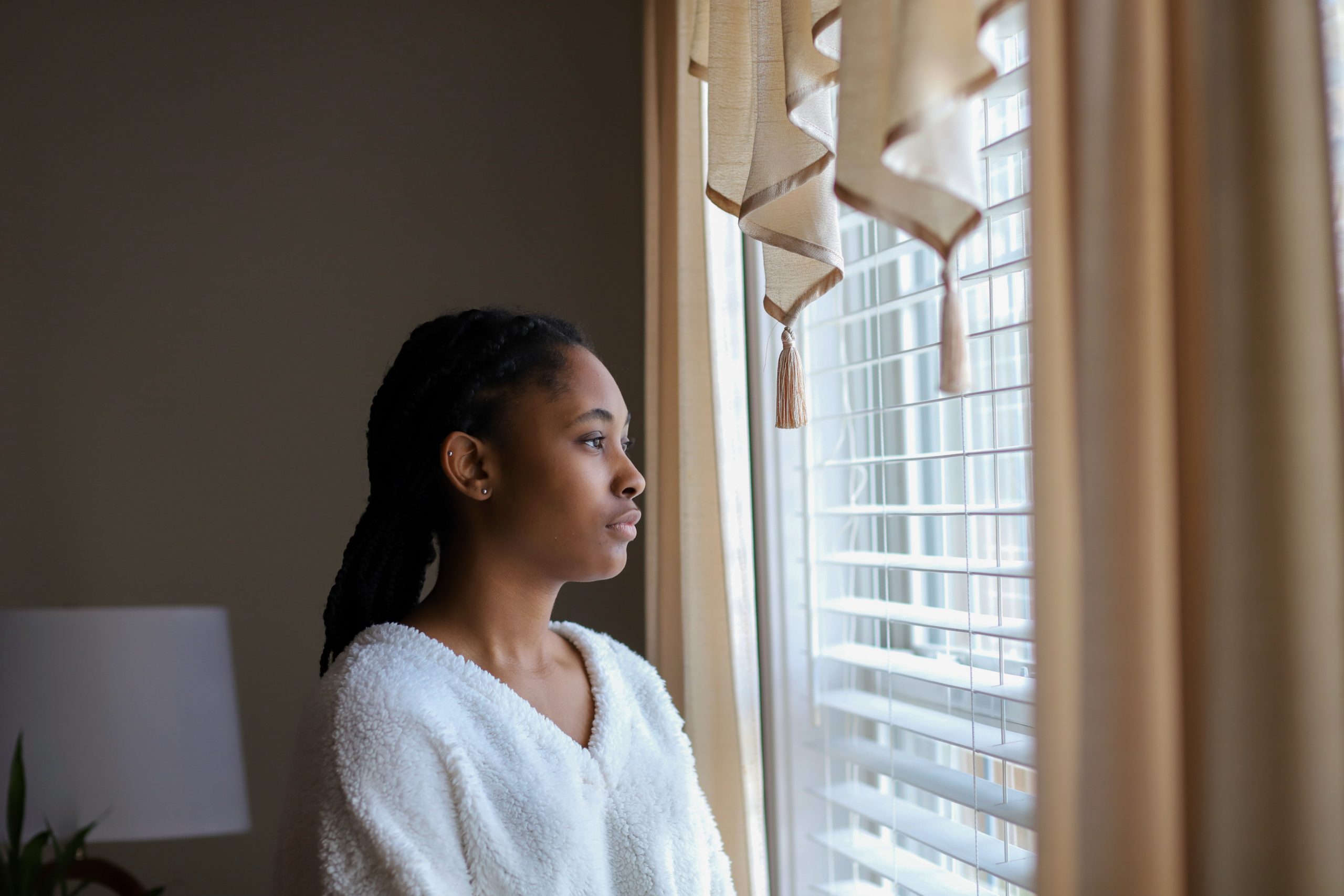

With the world thrown into a spin because of the pandemic, it's no surprise that more of us are reporting vivid and bizarre dreams during lockdown.
Having your dream meanings explained can help get to the root of the issue, especially if you're having nightmares in lockdown. We're also often told that fixing our sleep schedule, getting the full amount of sleep we need every night and avoiding certain drinks before bed can help us fall asleep easily.
Vivid dreams can be alarming at the best of times, as they often depict things happening that feel very much like real life. Lockdown has been affecting people's sleep for a year now, with a recent survey suggesting that 60% of us are finding the third lockdown the hardest one yet. Especially as many of us having been in lockdown for a long time.
The real world is alarming enough, we certainly don't need our dreams to be too reminiscent of our waking hours. This is what you need to know about why we're having vivid dreams in lockdown and how to prevent them...
Why are we having vivid dreams during lockdown?
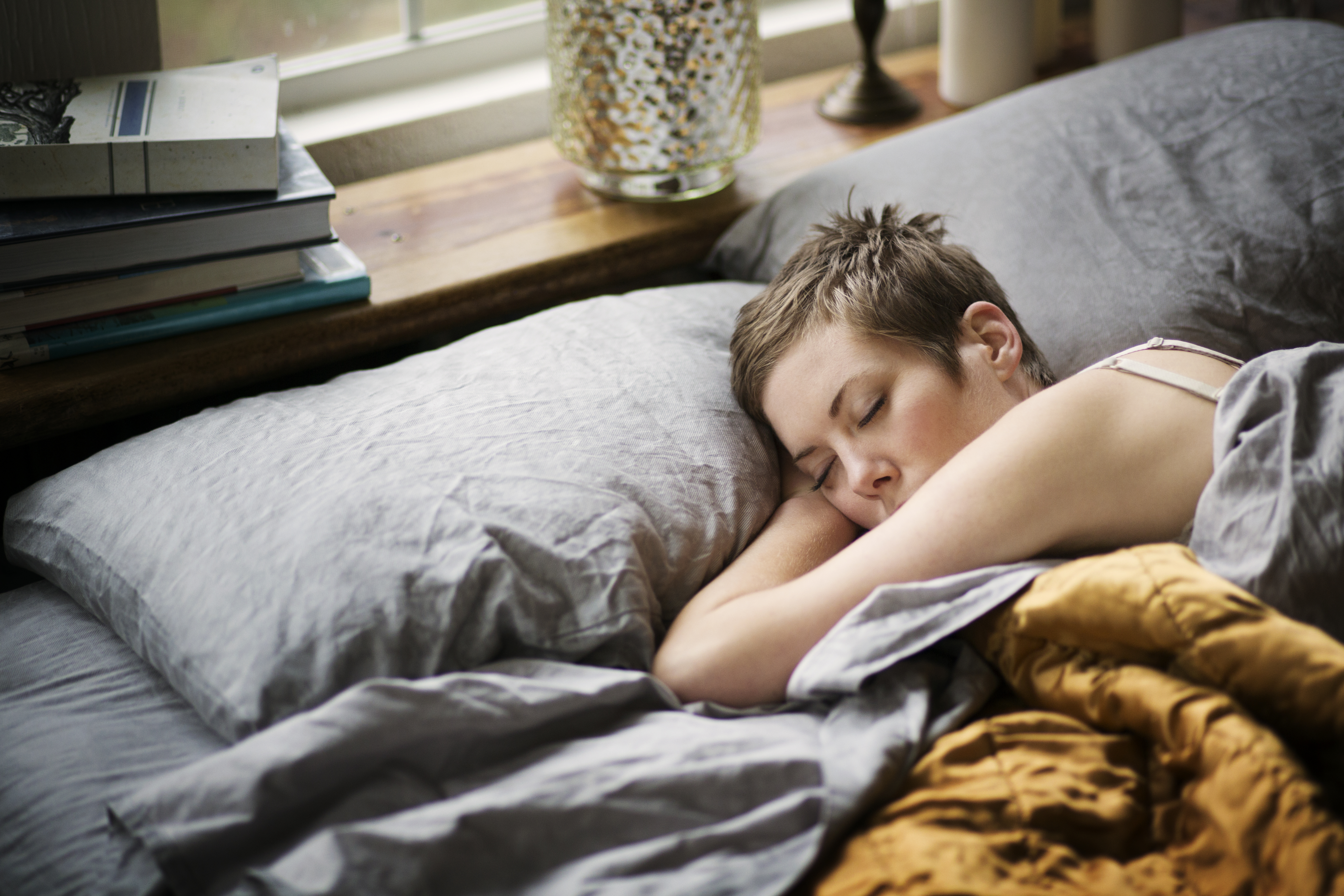
"Our dreams are a continuation of our thoughts from the day." Certified dream analyst Lauri Lowenberg explains, "If your day is full of worrisome or stressful thoughts, your dreams will reflect that. Stressful dreams tend to jolt us awake which is why they tend to be easier to remember than the dreams we sleep through.”
Professor Blagrove, leading sleep expert at Swansea University, agrees with Lauri. He says that our intense emotions can cause more vivid dreams during lockdown, as "people’s emotional life tends to crop up into their dreams more than the less emotional side.
"So if people are going through an emotional episode, that’s likely to pop up into people’s dreams. We’ve received many reports of this.”
GoodtoKnow Newsletter
Parenting advice, hot topics, best buys and family finance tips delivered straight to your inbox.
Reassuringly however, he says, “There is one theory that they [dreams] are doing some useful to our memories or emotions though. One possibility is that it may help us and consideration of our dreams can be useful to is.”
As well as having stressful days, our vivid dreams are a result of longer nights filled with more sleep than we used to have.
"If people are allowed to simply wake up instead of having the constraints of work and alarm clocks getting you out of bed quickly in the morning, what can happen is you have more REM sleep at the end of the night. That gets longer and longer, even by 40 minutes or so." Professor Blagrove explains,
"From about 80 per cent of our rapid eye movement sleep (REM) movements, we report a dream. And so if people are having longer sleep and people are able to consider ‘have I had a dream?’ when they wake up without having to race around, it’s very plausible that people can remember more dreams [hence remembering more vivid dreams during lockdown] .”
What are the most common vivid dreams during lockdown?
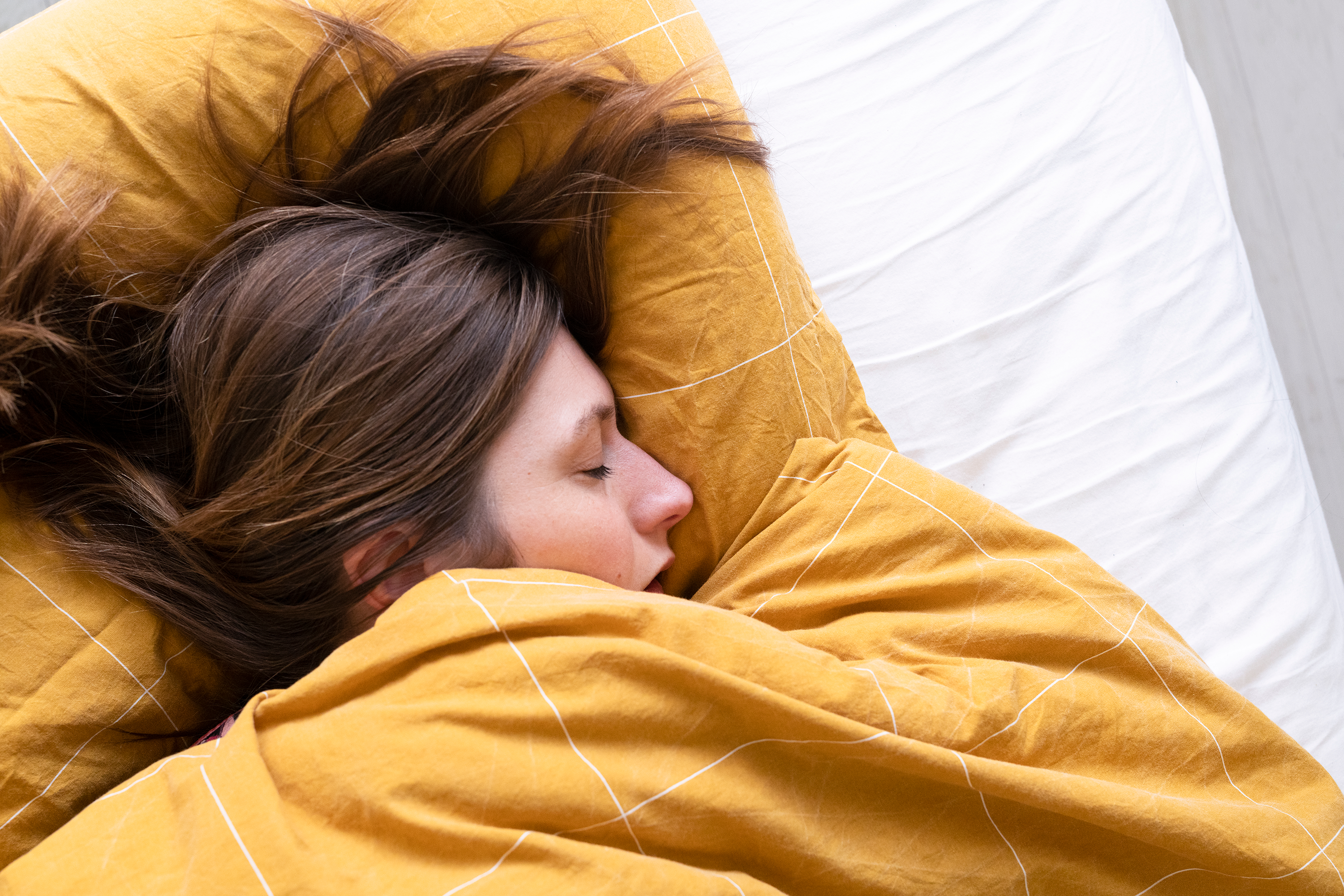
Walking through a horror house
“This dream could be a reflection of the dreamer’s relationship with her boyfriend while in lockdown." Lauri says, "At first it was fun and challenging, but now she is realising that this is a situation she wants to escape from; not necessarily the relationship but the difficulties lockdown is bringing to the relationship.
“Murder in dreams usually means the dreamer is feeling pressured to end or change something in real life. So this dreamer may be realising there are certain dynamics within the relationship that need to change.”
Being naked in the office
“Being naked in public is one of the top 5 most common dreams." Lauri explains, :The main cause of it is being concerned about how others perceive us. So something must be causing the dreamer to worry about what their co-workers will think of her once she returned."
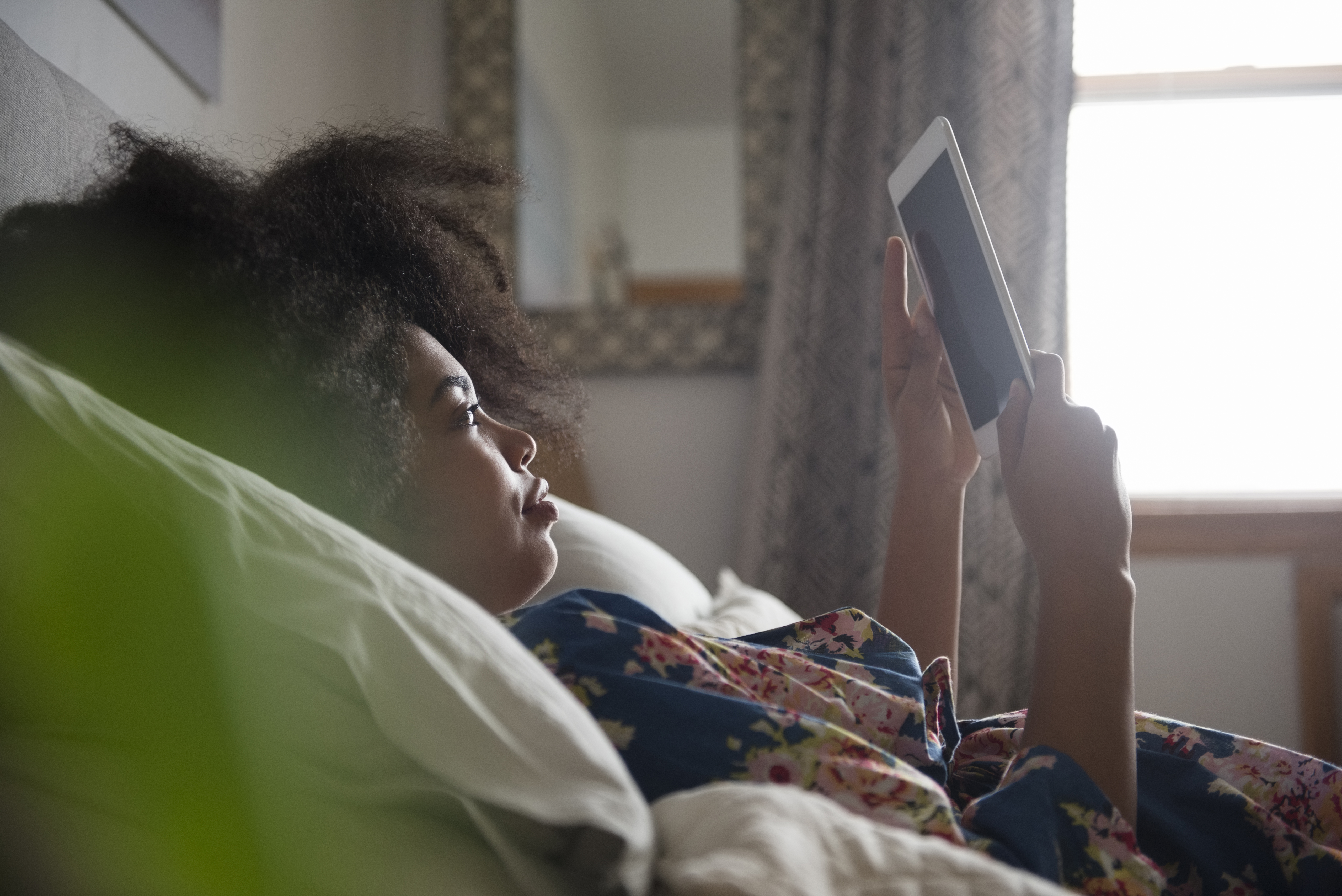
Zombies
In these unpredictable times, Lauri says dreams about zombies are far from irregular in lockdown.
"Zombie dreams are very common right now. There are several reasons why a zombie is a popular choice to personify Covid-19. This virus can be deadly and quarantine can certainly feel like an apocalypse - we tend to equate zombies with an apocalypse. Also, if a ‘zombie’ bites you, you turn into a zombie. Similarly, you can catch the virus. This is why the dreamer was defending his home - we are all trying to defend our homes right now."
Rodents everywhere
“Infestations are a common element in dreams recently. Infestations often mean there are a multitude of issuesthe dreamer is dealing with. In this dream, I think the multiplying hamsters represents frustration due to the dreamer feeling ‘caged in’ like an animal.”
Not be able to use your nose or mouth
It's not all just about mask-wearing. Lauri says, "When the ears and the mouth are brought to attention in a dream, it is usually because of a communication issue."
The dreamer may be having to ‘open’ themselves up to new ways of communicating because all these new issues and regulations seem to keep multiplying, symbolised by the rabbits. When we lose teeth in a dream, it is usually because we let something out of our mouth that should have remained in there permanently."
Could vivid dreams be making us feel tired all the time?
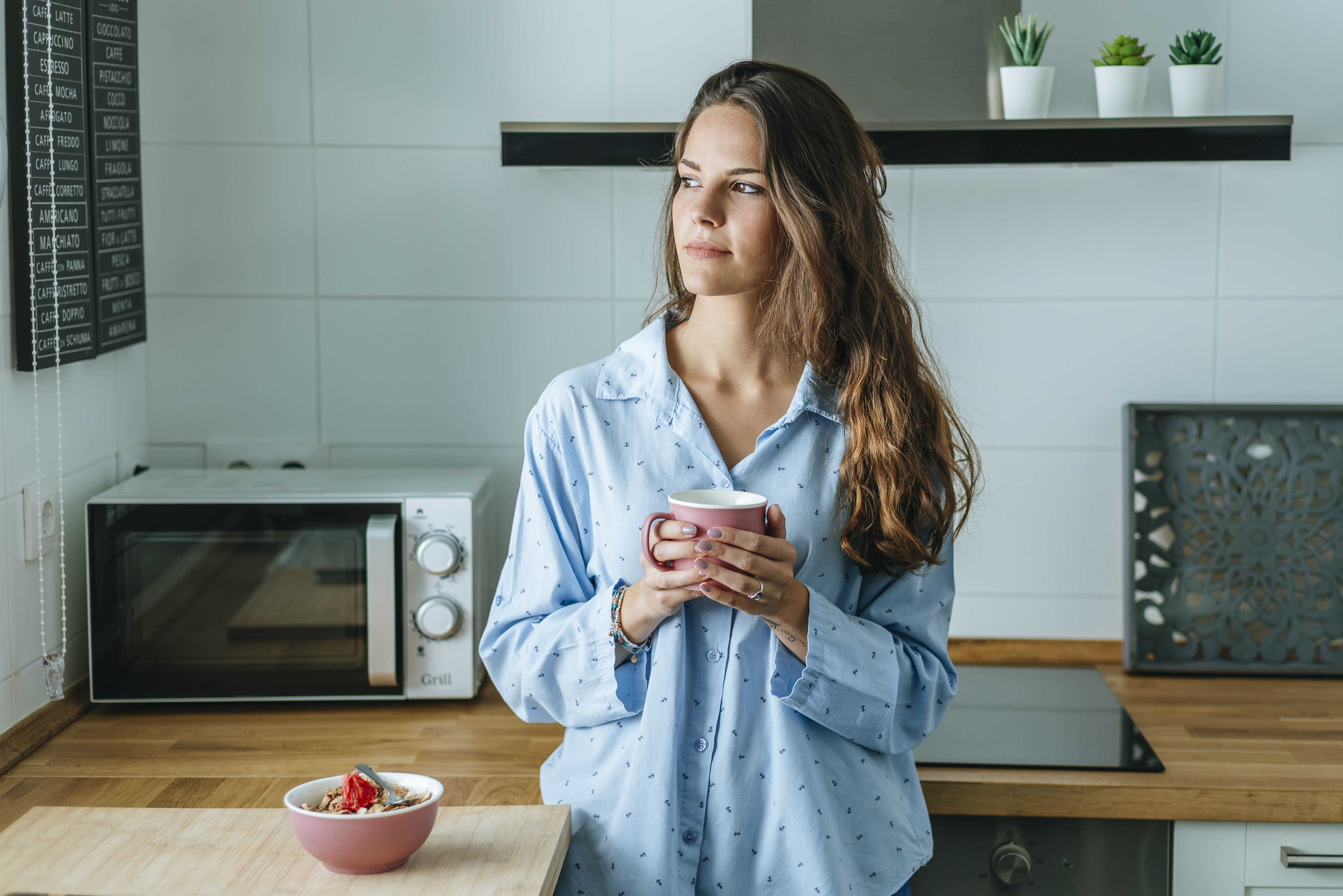
As much as our daytime lives have changed – we’re working from home with kids, unable to go outside for hours and are restricted to staying inside for most of the day – our nighttimes have changed as well. We asked sleep expert Hope Bastine about why exactly why we feel tired at the moment.
Our sleep is more likely to be disturbed
“COVID-19 has created the perfect storm for an overactive stress response,” Hope, who is also a PhD Researcher and resident expert for sleep technology firm Simba, says. As well as promoting more vivid dreams during lockdown, adrenaline can also wake us up during the night.
“This has placed our stress response into a ‘hyper-vigilant state’," Hope explained. "Effectively, our threat detected system is in hyper-alert in order to detect activities that could be dangerous.”
She adds, “The demand on our faculties are strained as we are now forced to juggle multiple responsibilities. We are trying to work from home while simultaneously providing our children with an education, keep a hygienic household, cook healthy meals and manage the financial ramifications of lockdown. This severe disruption to our routine makes for a disruptive night’s sleep.”
Our sleep cycles have been disrupted
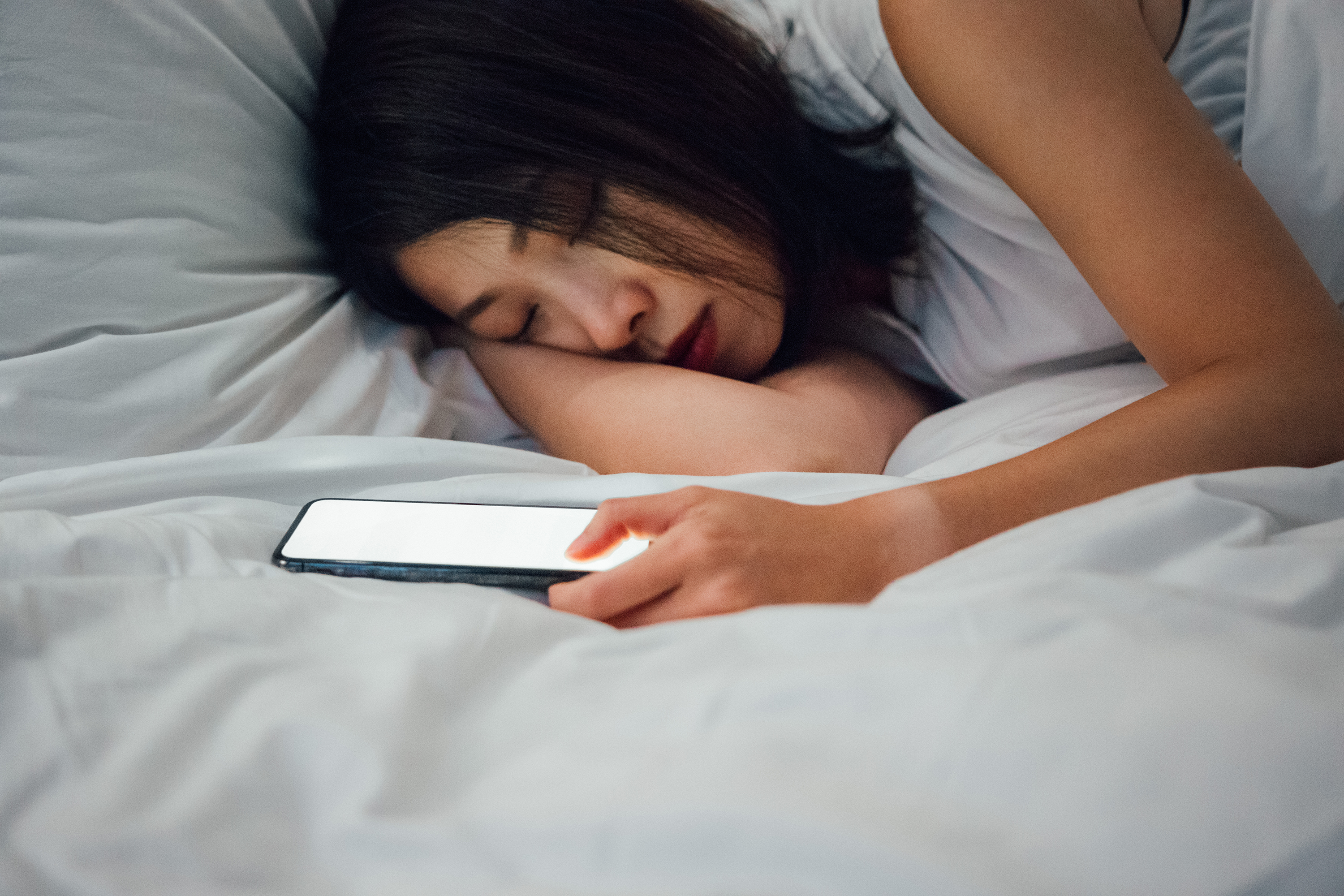
Hope says, “Pre-sleep anxiety causes poor quality sleep. What happens in our day, and how we respond to it, impacts our night's sleep.
“We are hardwired to protect ourselves and our family so in this current climate we sleep like dolphins - with one half of our brain switched on in order to detect danger. This means that our brain and body is not getting fully restored and regenerated throughout the night. Invariably, the deep sleep state that heals us and make us feel ‘good’ in the morning is greatly reduces. Hence, we will wake up in the morning groggy and tired.”
Adrenaline is in overdrive
Our over-active stress response is also why we are feeling tired earlier in the day, Hope says. “Being hyper-vigilant for a prolonged period of time causes us to be psychologically anxious and physically exhausted because we are depleting our immediately accessible energy resources.” Anxiety could also be a contributing factor to vivid dreams during lockdown - find out more in our dreams meanings explained.
How to sleep better in lockdown
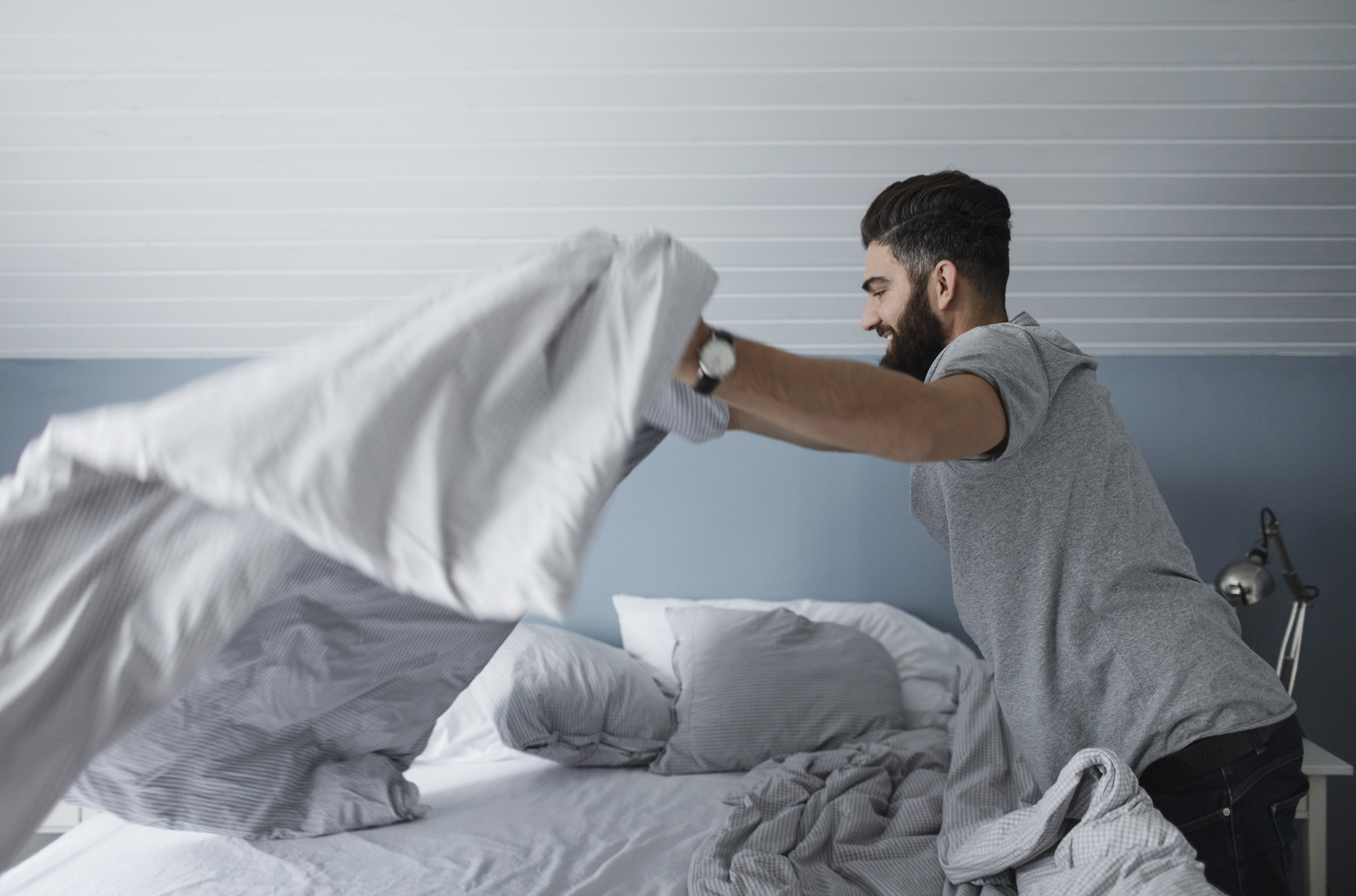
If vivid dreams are putting you off your beauty sleep, there's plenty you can do to stop them from happening.
Create a sleep routine
James Wilson, AKA The Sleep Geek is a Sleep Behaviour and Environment Expert. He has successfully helped professional athletes, among others, to understand their sleep better and improve their sleep behaviours. James says one of the most important things you can do to improve you sleep is set a new routine.
“We put a lot of pressure on ourselves to have a working day that’s like a normal working day. And while it’s good to have a normal routine, the routine has to be fit for now - not based on what you used to do.
“It’s about working out a new normal for you. If you’re a night owl for example and you’re used to waking up for a nine to five [job] at 6am to start your commute, you can actually change your routine a little bit and think ‘Well I need about seven hours sleep, I’m going to have 12 and get up at 7 or 8.”
He explains further, “It’s about taking the stress out because you can’t force sleep, and at the moment we’ve got so much time on our hands people are trying to force it. The one thing that will stop you from sleeping, as we all know, is worrying too much.”
https://www.youtube.com/watch?v=hKZo8A9YzSc
James, like Hope, suggests a routine for exercise is an important part of this. He says, “Natural light helps set our bodies, like ‘this is daytime’ and ‘this is night time’. Because of the way our body clock works, if we get light exposure at roughly the same time every day and we’re exercising at the same time every day, you’re more likely to feel tired at the same time every day.” But he emphasises, “That doesn’t mean trying to stick to the same routine that you had previously.”
Set boundaries
“Change in routine creates stress in the body and can also have a knock-on effect on your sleep cycle. Working from home can blur these boundaries, making it difficult for us to feel in-control of our lives.”
Hope suggests the following to incorporate new boundaries into your life and improve your sleep:
- Keep the work routine as close to “business as usual” as possible.
- Don't treat your usual commute hours as “extra” time to work – use this time to get some fresh air or do some exercise.
- Create a dedicated workspace and definitely, don't work on your bed.
- If you have really limited living space, (e.g. for those living in studios) Make your bed, put on a 'day' throw on it and when the work-day is done, remove it.
- When more than one of you is working from home, separate and meet for lunch.
- Take your lunch break away from your workspace and take regular breaks to maintain energy levels.
- Say no in a time when we feel things are out of control, we need to focus on the things we can control. Saying ‘no’ is a fantastic way of setting boundaries, maintaining personal space and making us feel in control.
- Keep 'work' communication through the 'work' mediums of communication like your work email.

Manage your screen time
“As we shift to placing a greater emphasis on technology to stay connected to loved ones, we run the risk of extended exposure to screen time.” Hope says, “As we know, light-based screens increase our exposure to artificial light and disrupt our circadian rhythm.”
She suggests, “Turn down the backlight on your devices, install the Flux app on your desktop and laptop to reduce the harsh blue light levels.”
Before bed, Hope advices that we switch to non-screen based forms of entertainment 1-3 hours before bedtime. She says, “It would be great to see a resurgence of the jigsaw puzzle – they are a brilliant way to bring a sense of calm and serenity. External worries and stress subside as the mind tunes into something meditative and satisfying.”
Exercise daily
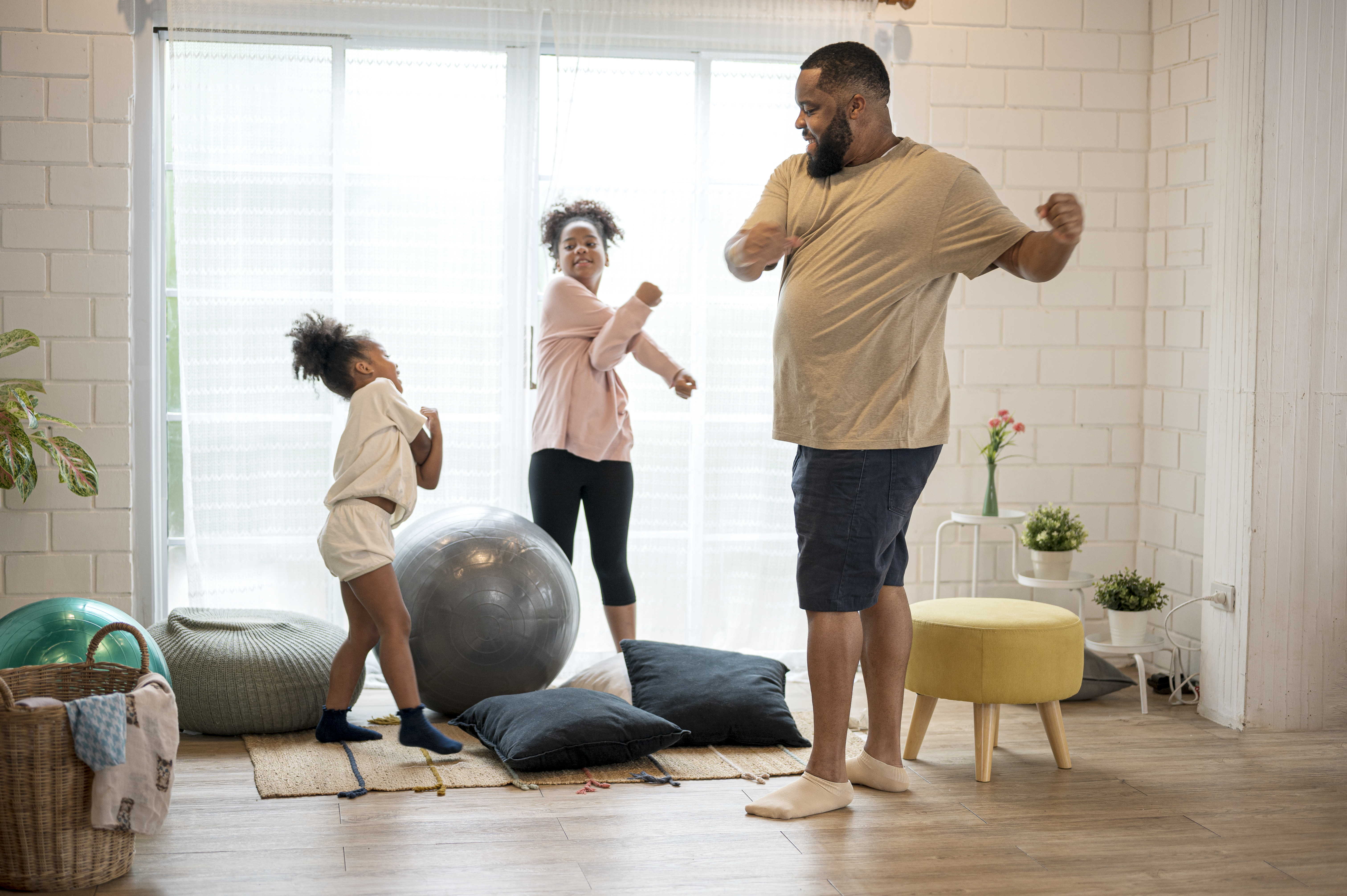
“When in a hyper state, our body is releasing large quantities of the stress hormone, cortisol. Exercising is a useful way of releasing physical stress and getting the mind off the emotional distress.
“Research also shows that even 30 minutes of HIIT per day can improve sleep quality by 65 per cent.”
What to do if your child can't sleep in lockdown
James says parents have tried to stop their kids feeling tired all the time in different ways.
He says, “I’ve seen people with kids saying, ‘I going to put them [children] in their school uniform and I’m going to make them work for seven hours like they would at school.’ That’s not going to help anybody. That’s just putting too much stress on the entire household. Create a routine that’s a new normal.”
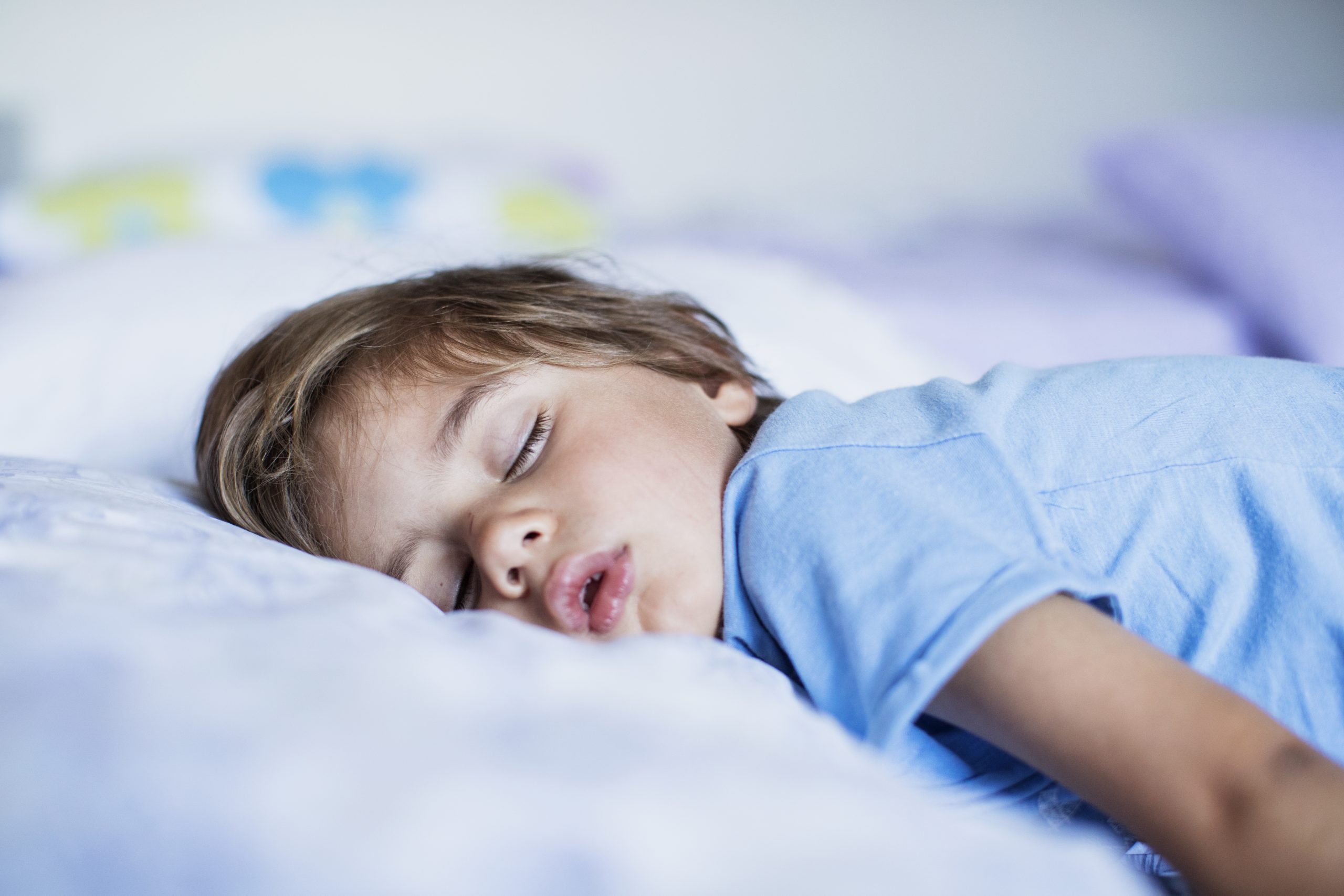
“If you’re a night owl, you’re more likely to wake up late and get up late. If you are still at school, it’s better to get the sleep you need. You might not even start your schoolwork until 10am but you will be more efficient at that time. For teenagers, it might be a chance to have a sleep and learning routine that’s more suited to them.”
He says the same goes for young children. “Choosing their own sleeping habits will make them more productive.
“As a parent, be aware that all kids are different and all kids have a different sleep style. But particularly, teenagers are night owls and they are designed to get up later. So talk to them, have a conversation with them.”
“But don’t let them get carried away with it.” James warns, “If they’re used to going to bed at 7pm for example, don’t let them go to bed at 9.30pm. That’s a big jump.”
Try creating a sleep routine for kids. James says, “If they have a book before bed, keep the book before bed in place. Have the routine still there as a routine, but what this allows you to do is work out as a family what works.”
To create a routine for yourself or your kids, our experts advise that you listen to your own body (or your children’s) and figure out what works for you as an individual. But to stop feeling tired all the time, keep those sleep-preparation steps in place.

Grace Walsh is a health and wellbeing writer, working across the subjects of family, relationships, and LGBT topics, as well as sleep and mental health. A digital journalist with over six years experience as a writer and editor for UK publications, Grace is currently Health Editor for womanandhome.com and has also worked with Cosmopolitan, Red, The i Paper, GoodtoKnow, and more. After graduating from the University of Warwick, she started her career writing about the complexities of sex and relationships, before combining personal hobbies with professional and writing about fitness.